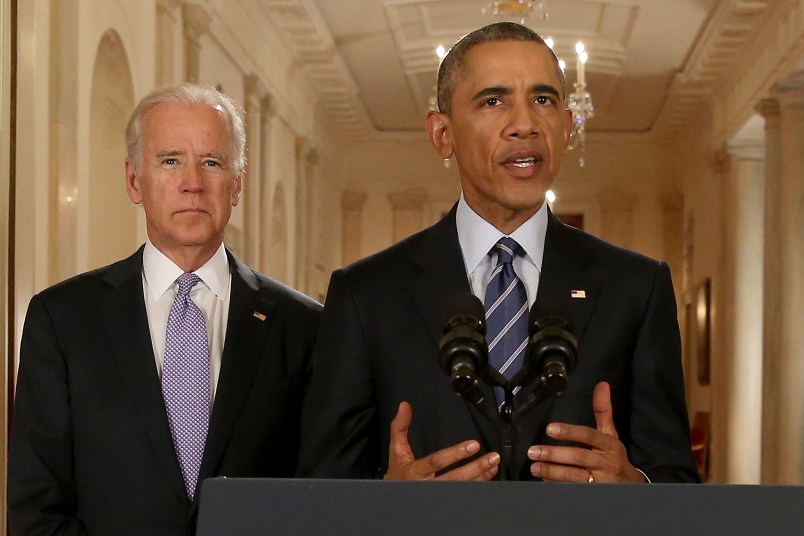I heard from a reader yesterday who said, in so many words: I support President Obama and I support the Iran deal. But what’s with the 24-day notice to do inspections? That sounds bad to me. What’s the story with that?
Mainly, I think this is a demagogued and phony issue. Here’s my take.
First of all, there’s no 24-day notice for inspection. Under the accord, all of Iran’s known or declared nuclear sites are under permanent and constant surveillance. The issue is whether the U.S. (or another country) come to suspect that there are new secret sites and how it gets access to them. Twenty-four days isn’t actually a codified number. It’s the sum of the schedule in which the U.S. or another country can demand access, have the Iranians respond and then, if there’s no agreement, have the question submitted to a panel which the U.S. will almost certainly command a majority on. The total is 24 days.
Now, that seems like a long time. But there’s this thing called radiation. Which leaves traces. Like for thousands of years in most cases. So this is not like cleaning up a crime scene or doing really anything else. If you set up a secret nuclear facility for enriching uranium – or doing really anything else with radioactive material – you can’t remove all traces of that. Again, radiation. The people making the biggest stink about this are phrase-makers from RNC, AIPAC and the various other billionaire-backed, stood-up advocacy groups fighting the deal. Virtually every nuclear expert and weapons scientist does not see it as a problem.
The main exception is a guy named Olli Heinonen, someone who comes with real credentials. He’s the former Deputy Director of the International Atomic Energy Agency. But he’s been a critic of any deal for a long time. And if you look specifically at what he says, other than saying in general terms that 24 days is too long, it’s that that there are smaller-scale research or work that could be done without nuclear materials that could be cleaned up or sanitized in the 24-day time horizon. And he is not the only one who expresses this concern. Former Iraq weapons inspector David Albright, who I think is less invested in opposition and thus more credible on this issue, notes that work with the sorts of conventional explosives that are used to detonate a nuclear weapon could possibly be concealed.
This article in the Times gives full voice to Heinonen’s arguments. But even those, looked at closely, don’t really add up.
Mr. Heinonen, however, said there had been cases in which Iran had successfully hidden evidence of illicit nuclear work even when nuclear enrichment was involved.
When the atomic energy agency sought to inspect the Kalaye Electric Company site in Iran in 2003 to check whether the Iranians were using centrifuges that they had obtained from Pakistan, the Iranians kept inspectors at bay while they spent weeks removing the equipment and renovating the building where it had been kept.
“Certain parts of the installation were renovated, leaving no trace of enrichment activities that had taken place,” Mr. Heinonen said. “However, nonrenovated parts had uranium in the 2003 contamination, which raised concerns.”
As impressive as the Iranians’ efforts at concealment were then, Mr. Heinonen said they would be better prepared to remove the evidence of illicit work if they decided to cheat on the accord. So here you have a very limited number of centrifuges. The Iranians tried to dismantle the set-up. But there was radiation contamination that they weren’t able to get eliminate. But, don’t let that reassure you. The Iranians will get better at it!
This isn’t a serious critique. Radiation is a stubborn thing that resists people’s ability to get better at concealing. These are the kind of arguments which have some plausibility at the margins (largely on the possibility of kinds of research and development which don’t involve nuclear materials) but are really just talking points meant to scuttle a deal.
But again, the kind of cheating that actually puts you in a position to make a bomb involves nuclear material. And the actual weapons scientists do not see this as a significant concern. Would twelve days be even better? Sure. Is Iran going to be able to shut down and clean up a secret nuclear facility in 24 days? No. That’s just not how it works. I’m not that familiar with how uranium and nuclear weapons work. I’m going to listen to people who work with radioactive material and build weapons rather than senate press secretaries and people spending Sheldon Adelson’s money.








